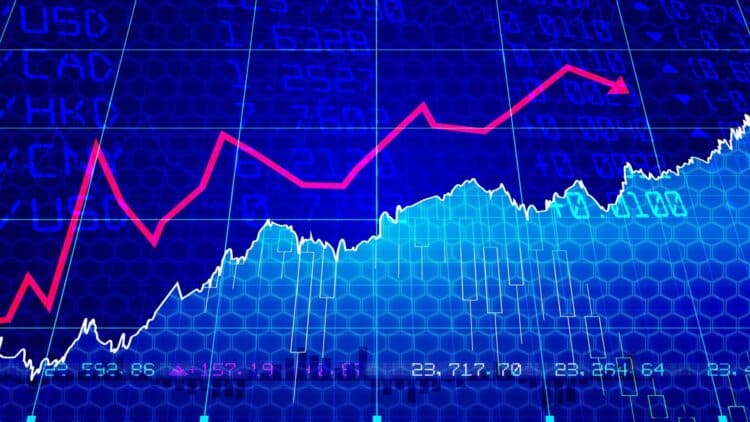Consumer sentiment in the U.S dropped to 55.4% in September, which is a 4.8% decrease from August’s 58.2% and the lowest point since May 1, according to a survey by the University of Michigan. This indicates a 21% decrease from the same period last year, which highlights the anxieties that Americans are feeling regarding a recession, inflation, and employment opportunities. Consumers feel that their personal finances are declining and are spending 8% less than last month.
The effects of tariffs on the economy: How consumers are spending
Respondents to the survey believe that sentiment has had a significant negative shift because of the imposed tariffs.
Joanne Hsu, the survey director, explains:
“Consumers continue to note multiple vulnerabilities in the economy, with rising risks to business conditions, labor markets, and inflation.”
The analysts at High Frequency Economics fell short of optimism when they concluded that rising consumer prices and the reality of the consequences of tariffs are just starting to be felt by consumers. This change is received much more harshly by low-income households, because they are easily affected by the price influx, and more often than not, cannot invest in the stock market. The impacts of Tariffs. Economists, for example, market analysts, say that the changes in the economy because of the Covid-19 pandemic can be felt.
The inflation of prices expected did not change; they remained almost unchanged (a little over 4.8%) for the next year in the future, unlike the long-term ones that experienced a drastic hike, from 3.5% to 3.9%, in the long run. This means that the workers get ready for all the pressure that would be placed on them from the prices driven by the increased tariffs.
A study from outside the University of Michigan stated that only 24% of consumers plan to keep their spending as it was on goods that have been marked up by tariffs. This means that they have become careful and have changed how they prioritize their spending.
Unemployment concerns linger as fewer jobs are added to the economy
The consumers who are part of the economy seem to be very afraid of the job market as well. Many of the early indicators suggest that around 65% of consumers foresee the unemployment rate rising in the next 12 months, which is the highest level since the Great Recession. This is why, over the 12 months ending March 2023, the US economy added 911,000 fewer jobs than was previously believed, which was the downward revision to the payroll data that was the most recent.
Concurrently, the month of June added 13.000 jobs, the first jobs added since December 2020. The probability of finding a new job after losing one, at least in the perception of the respondents, is at an all-time high (since 2013), according to a New York Fed survey released this month.
How consumer sentiment is impacting the economy
The drop in consumer sentiment is taking place simultaneously with a slew of disappointing economic data. In a recently released inflation report, the Consumer Price Index (CPI) showed an annualized inflation rate of 2.9%, which is a further strain on the existing households’ budgets. The consumer sentiment is at an all-time low because people are facing higher costs with no jobs to fall back on. The better-off households can absorb the economic shocks, but the less well-off families are feeling the brunt of the financial strain.
The feeling of September suggests that the consumer is further pessimistic about the economy. The relentless inflation and tariffs have weakened the purchasing power of the people, and the employment opportunities are minimal. The overall well-being of the economy is worrying. This is a classic signal to all policymakers and business owners, as consumer sentiment is one of the primary motivations for economic growth and spending.


